

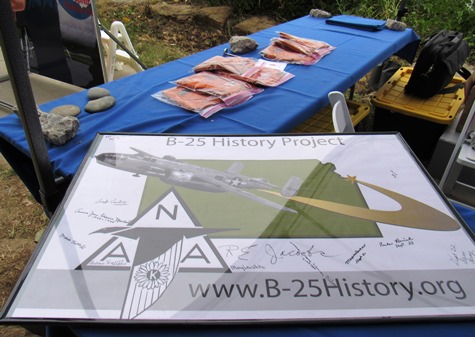

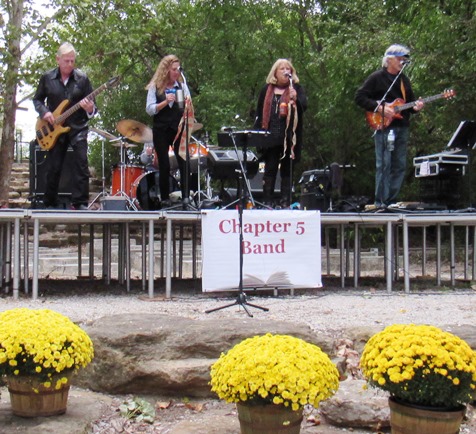
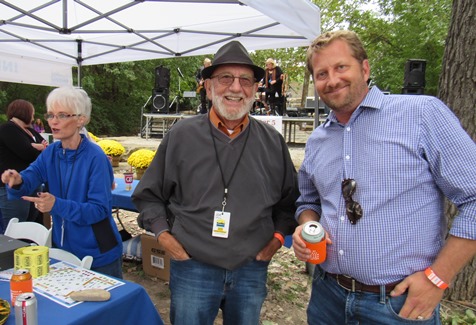
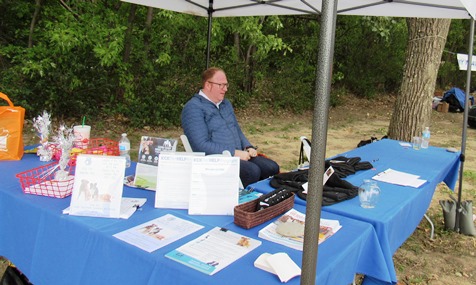





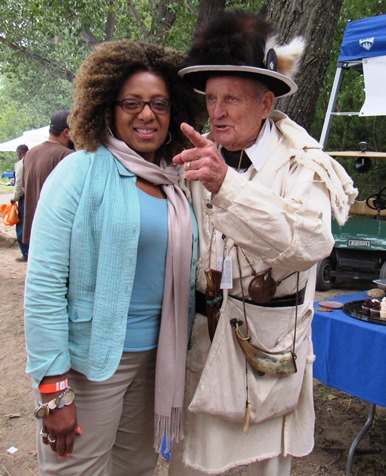
Serving Kansas City (Wyandotte County) Kansas for over 50 years!













Sporting Kansas City forwards Krisztian Nemeth and Johnny Russell will join their national teams next week for the resumption of the 2018-2019 UEFA Nations League in Europe.
Nemeth and Hungary will play two away matches in Group 2 of UEFA Nations League C, battling Greece on Friday, Oct. 12, at Karaiskakis Stadium in Piraeus before facing Estonia on Monday, Oct. 15, at A. Le Coq Arena in Tallinn. Both games will kick off at 1:45 p.m. and stream live on ESPN+.
Russell and Scotland will resume their Group 1 campaign in UEFA Nations League C on Thursday, Oct. 11, visiting Israel at Sammy Ofer Stadium in Haifa with kickoff set for 1:45 p.m. Scotland will then return home to meet world No. 7-ranked Portugal in an international friendly at 11 a.m. Sunday at Hampden Park in Glasgow. Both Scotland matches will stream live on ESPN+.
Before venturing across the Atlantic, Nemeth and Russell will be available for Sporting KC’s crucial Western Conference clash against Zlatan Ibrahimovic and the LA Galaxy at 7:30 p.m. Saturday inside Children’s Mercy Park in Kansas City, Kansas. A limited number of tickets for the highly anticipated matchup, including standing-room only tickets, are available via SeatGeek.com or by calling 888-4KC-GOAL.
Nemeth, 29, has earned his first selection to the Hungary Men’s National Team since March. He has scored four goals in 34 senior appearances for the Magyars since debuting in 2010, featuring in 2014 and 2018 FIFA World Cup qualifying as well as UEFA Euro 2016 in France. He last scored for Hungary in a 3-2 friendly defeat to Kazakhstan on March 23.
Since beginning his second stint at Sporting KC in early August, Nemeth has started four of eight MLS appearances with a goal and an assist, helping the side to a 5-2-1 record during that time. He previously spent the 2015 campaign with Sporting KC, notching 16 goals and seven assists as manager Peter Vermes’ men lifted the Lamar Hunt U.S. Open Cup title and advanced to the MLS Cup Playoffs.
Hungary currently occupies second place in Group 2 of UEFA Nations League C, having lost to Finland and beaten Greece last month. All four teams in the group-which consists of Hungary, Finland, Greece and Estonia-will play four more UEFA Nations League matches between now and mid-November. The first-place finisher will earn promotion to League B in the 2020-2021 UEFA Nations League, while the last-place team will be relegated to League D.
Russell, 28, has collected three of his seven caps for Scotland since joining Sporting KC ahead of the 2018 MLS season. He earned his first international start in a 1-0 friendly loss at Mexico on June 2 before featuring in a friendly defeat to world No. 2-ranked Belgium on Sept. 7. Three days later, Russell started in Scotland’s victorious UEFA Nations League curtain raiser against Albania. Prior to this year, the forward last represented his country in a UEFA Euro 2016 qualifier in October 2015.
Russell has enjoyed a superb debut season at Sporting KC, where he leads the team in both goals (10) and assists (11) across all competitions. His offensive output has proven instrumental for a side that has amassed 55 league goals-third most in club history-and sits two points behind first-place FC Dallas in the Western Conference.
Scotland joins Albania and Israel in the three-team Group 1 of UEFA Nations League C. Russell’s team owns an early hold of first place, having ousted Albania 2-0 on Sept. 10, with three games still to be played over the next month and a half. The first-place finisher will be promoted to League B in the 2020-2021 UEFA Nations League, while the last-place side faces possible relegation to League D.
– Story from Sporting KC
by Dan Margolies, Kansas News Service
Leavenworth Detention Center sits about 35 miles northwest of Kansas City, Missouri, just off the town’s main drag – a nondescript stretch of fast-food shops, strip shopping malls and mom-and-pop businesses.
The prison is a sprawling complex of squat white buildings ringed by chain-link fencing topped by razor wire. People charged with federal crimes who can’t make bail are held here.
The prison can hold more than 1,100 detainees, male and female alike. Lawyers regularly meet with them there to review their cases.
Those conversations are supposed to be private. But ever since the disclosure two years ago that the owner and operator of the prison, CoreCivic, had video- and audio-taped attorney-client meetings, the prison has been the center of a raging controversy.
And this week, in what’s shaping up as a blockbuster court hearing, evidence may be produced about whether and to what extent federal prosecutors viewed or listened in on those recordings.
In a move with little precedent, the Federal Public Defender has subpoenaed more than a dozen prosecutors and employees of the U.S. Attorney’s Office to testify about whether they accessed any of the recordings. Melody Brannon, head of the Federal Public Defender Office in Kansas, says without the assurance of confidentiality, her office can’t do its job.
“It’s critical to the system that an attorney and client can speak in confidence so that we can best represent our clients, so that they can confide in us and let us know the essential facts and concerns that they have,” Brannon said. “That enables us to make the right decisions and how to proceed in the case. If we don’t have that confidentiality, it cripples the job of the defense attorney in representing our clients.”
So serious is the breach of confidentiality seen that scores of inmates who say their communications with their lawyers were taped are seeking to have their convictions overturned.
Brannon has been leading the charge to get to the bottom of what happened.
“We requested (CoreCivic) to not record calls to our (phone) numbers,” she said. “So anytime someone inside was calling, those were not supposed to be recorded. And yet we found for a two-year period that those calls were recorded.”
U.S. District Judge Julie Robinson appointed a special master to investigate not just the extent of the recordings but whether any of them had been turned over to federal prosecutors. The scope of the investigation by the special master, Cleveland attorney David R. Cohen, was limited to the case in which the recordings first came to light. But Cohen quickly discovered that hundreds of attorney-client meetings at Leavenworth had been videotaped.
“The idea that the United States Attorney’s office had access to attorney-defense counsel meeting with their clients was a big deal,” Cohen, the special master, said. “And so I was appointed by the judge to determine really what was going on and the extent to which that might have occurred.”
It’s not clear at this point to what extent the U.S. Attorney’s Office may have accessed the video recordings. One of the reasons that remains murky is that a hard drive in the U.S. Attorney’s Office containing the recordings was mysteriously wiped clean – even after the judge had ordered the office to preserve it as evidence.
Since Cohen’s appointment, separate class action lawsuits brought by lawyers and detainees claim to have uncovered evidence that more than 1,300 phone calls between public defenders and inmates at CCA were improperly recorded over a two-year period. Beyond that, they claim, nearly 19,000 inmate phone calls to 567 attorneys on a list compiled by Cohen had also been recorded over a period of several years.
The U.S. Attorney’s Office initially cooperated with Cohen’s investigation. But last fall, it abruptly stopped cooperating – which prompted Brannon to file a motion to hold it in contempt.
A hearing on the motion got underway in May, but it was recessed after the newly appointed U.S. Attorney, former Kansas Solicitor General Stephen McAllister, indicated he was willing to work out an agreement to reduce the sentences of inmates whose communications with their attorneys were recorded. Two months later, however, McAllister’s boss at the Justice Department, Deputy Attorney General Rod Rosenstein, nixed the proposal, saying that blanket reductions of inmates’ sentences were out of the question.
As a result, the hearing is set to resume this week. In a move with little precedent, the Federal Public Defender has subpoenaed more than a dozen prosecutors to testify about whether they accessed any of the recordings.
Pam Metzger, director of the Deason Criminal Justice Reform Center at Southern Methodist University and an expert on the Sixth Amendment, says the mere possibility that prosecutors obtained attorney-client recordings “would be jaw-droppingly, dumbfoundingly shocking.”
“It would demonstrate an absolute failure not simply of the adversary system, but of due process,” she said. “It would demonstrate the most profoundly unethical disregard not only for the rule of law but for the United States Constitution.”
CoreCivic says it does not comment on pending litigation. But in court filings, it says detainees knew their calls might be recorded – even though attorney-client phone calls were supposed to be off limits. And that still doesn’t explain how or why the recordings may have been turned over to prosecutors.
“The victims here are poor people charged with crimes who were confronted by the power of the state, who were locked in cells and who were dependent on other people – lawyers – to provide them with communication,” said Metzger, who has consulted on the case. “And if they are not entitled to trust that their lawyers are telling them the truth when their lawyers say ‘It’s okay, we can talk,’ then how in the world can they expect any kind of justice in this system?”
It’s not clear what would happen if Judge Robinson finds federal prosecutors in contempt. But Metzger thinks Rosenstein’s decision to blow up the proposed agreement may be even more problematic for prosecutors.
She points out that 95 percent of all federal criminal cases are resolved through guilty pleas. But if prosecutors don’t have the authority to reach such agreements, she said, then it calls into question much of the basis on which the criminal justice system rests.
“I don’t know how any federal district court can ever expect to do business in an honest, predictable and fair manner with the lawyers it sees every day – and that’s without regard to whether the lawyers in any particular case misbehaved,” she says. “If they in fact do not have the authority they believe they have to enter into these plea agreements, then the whole system is thrown into chaos.”
The recording scandal has already thrown the system into chaos. The Federal Public Defender has filed motions on behalf of 60 inmates whose calls with their attorneys were recorded, seeking to have their convictions overturned outright. And it’s planning to file at least 60 more motions in the weeks to come, said Brannon, of the Federal Public Defender’s Office.
“We’ve asked for an individual evidentiary hearing in each,” she said. “We have asked for the actual conviction to be overturned and the government barred from retrying the case. Alternatively, we’ve asked for reductions in their sentences.”
Cohen, who has been appointed a special master in nearly 30 cases over the last 15 years, says he’s never been involved in a case quite like this one.
At bottom, he says, the case is about trust between the defense bar and prosecutors, which – at least in Kansas – has taken a huge hit in the wake of the recordings scandal.
“It’s something we’re working very hard to reinstate,” he said.
Hearings could well determine if that happens.
Dan Margolies is a senior reporter and editor at KCUR. You can reach him on Twitter @DanMargolies. Kansas News Service stories and photos may be republished at no cost with proper attribution and a link back to kcur.org.
See more at http://www.kcur.org/post/did-attorneys-listen-thats-question-hearing-leavenworth-tapings.